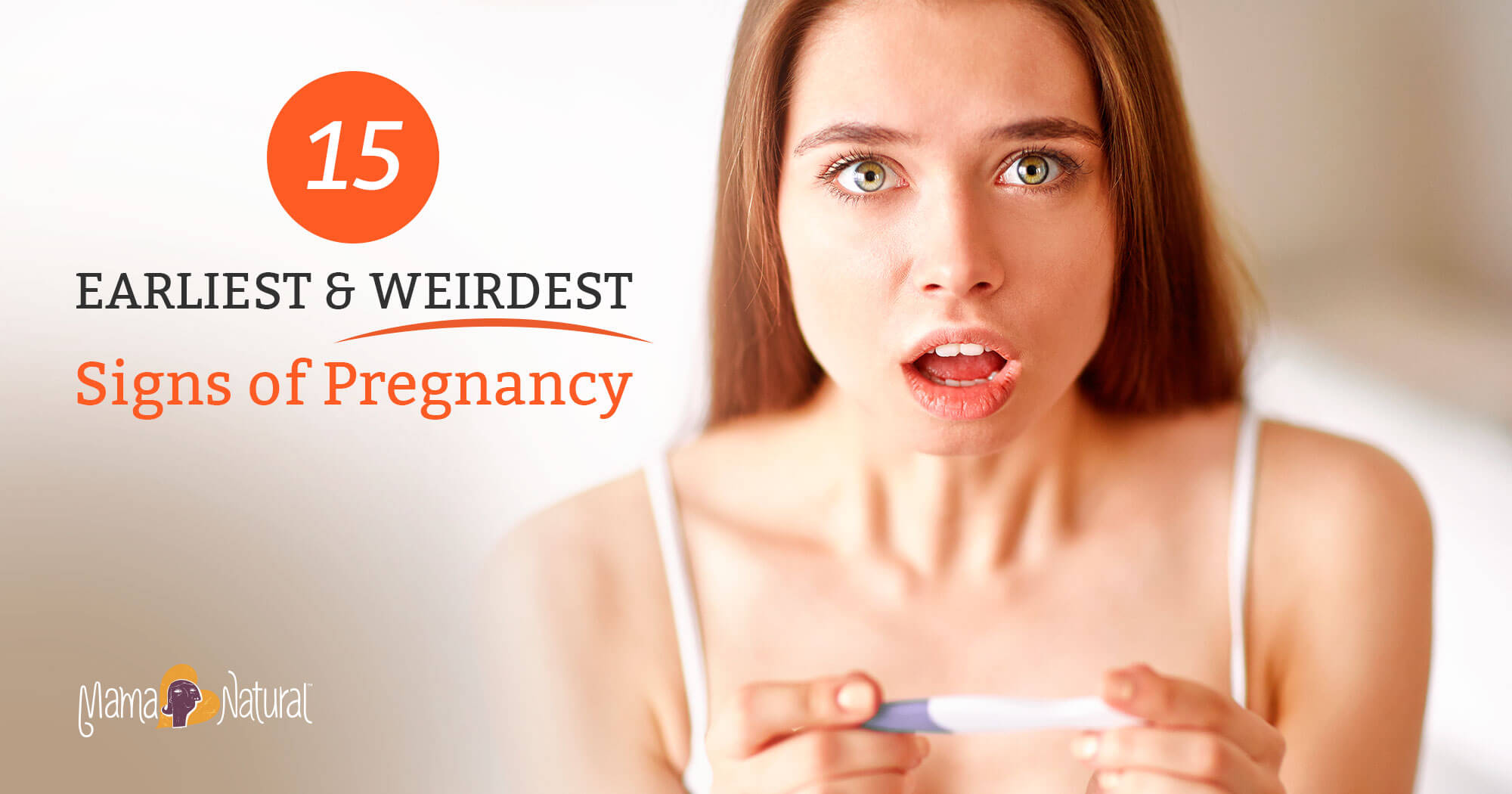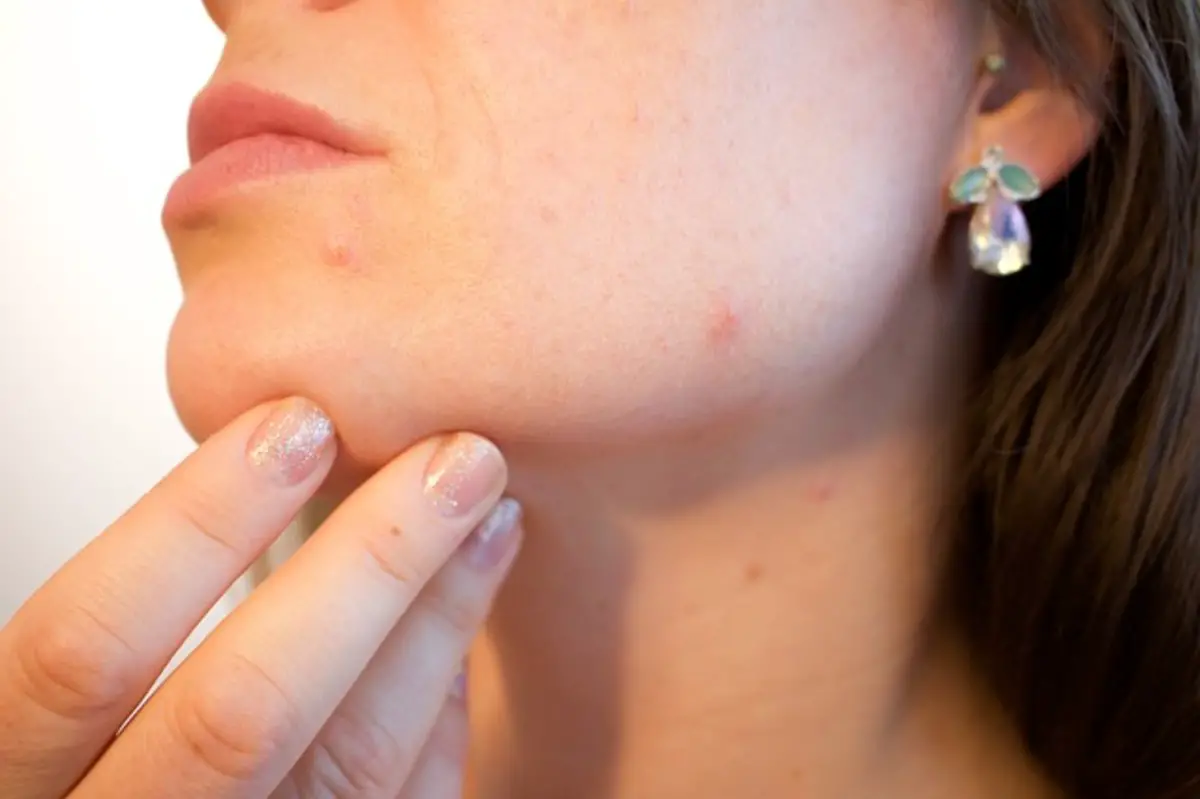Yes, acne can be an early sign of pregnancy as hormonal changes commonly cause an increase in oil production and breakouts on the skin. Acne is a common skin condition that affects many individuals, but it can also be an early sign of pregnancy.
During pregnancy, hormonal changes in the body can lead to an increase in oil production, which can clog pores and result in breakouts. These hormonal fluctuations can cause acne to occur or worsen in some pregnant women, especially during the first trimester.
While not every woman will experience acne as an early sign of pregnancy, it is important to note that hormonal changes can affect the skin in various ways. If you suspect you may be pregnant and are experiencing acne, it is always best to consult with a healthcare professional for a proper diagnosis and advice.

Credit: www.mamanatural.com
Understanding The Relationship Between Hormones And Acne
Acne can potentially be an early indicator of pregnancy due to the hormonal changes that occur. During pregnancy, hormonal fluctuations can lead to increased oil production in the skin, potentially causing breakouts. Specifically, androgen hormones play a role in the development of acne.
These hormones stimulate the sebaceous glands, resulting in more sebum production and clogged pores. As a result, pregnant women may experience a higher incidence of acne. Understanding the relationship between hormones and acne during pregnancy is essential for managing skin concerns during this time.
By recognizing the hormonal influence on acne development, individuals can take appropriate measures to minimize breakouts and maintain healthy skin throughout their pregnancy journey. So, if you notice an increase in acne during early pregnancy, it might be attributed to the hormonal changes occurring in your body.
Debunking The Myth: Is Acne A Reliable Indicator Of Pregnancy?
Debunking the myth: is acne a reliable indicator of pregnancy? Limited scientific evidence supports this claim. Acne occurrence can be influenced by other factors as well. Hormonal changes during pregnancy might contribute to acne development. Stress and genetic predisposition can also play a role.
The link between acne and pregnancy needs further research. It’s essential to consult a healthcare professional for an accurate pregnancy confirmation. Relying solely on acne as a sign may lead to misunderstandings. Remember that each woman’s body responds differently to hormonal fluctuations.
While acne can occur during pregnancy, it is not a foolproof indicator. Trusted medical advice should always be sought when confirming a pregnancy.
Identifying Common Skin Changes During Early Pregnancy
Acne during early pregnancy is a common skin issue that many women experience. Differentiating between pregnancy-related acne and regular acne can be challenging. However, there are some signs that can help distinguish the two. Pregnancy-related acne tends to occur in specific areas such as the chin, jawline, and cheeks.
It is often accompanied by other pregnancy symptoms such as nausea and breast tenderness. Additionally, hormonal changes play a significant role in the development of pregnancy acne. These hormonal fluctuations can increase the production of sebum, leading to clogged pores and breakouts.
Maintaining a proper skincare routine and using gentle products can help manage pregnancy-related acne. It is essential to consult a healthcare provider for appropriate guidance and treatment options. Understanding these common skin changes during early pregnancy can provide expectant mothers with valuable information and peace of mind.
Managing And Treating Pregnancy-Related Acne
Acne during pregnancy can be a common occurrence for many women. It is important to manage and treat pregnancy-related acne using safe and effective skincare routines. There are several over-the-counter and prescription treatments that pregnant women can consider. These treatments should be chosen carefully, keeping in mind the safety of both the mother and the baby.
It is advised to avoid starting any sentence with commonly overused words or phrases, as it helps to maintain a unique and compelling writing style. Additionally, using a variety of phrases at the beginning of paragraphs helps to keep the reader engaged.
In conclusion, managing and treating pregnancy-related acne requires a cautious approach to ensure the well-being of both the expectant mother and her baby.
Maintaining A Healthy Pregnancy Skincare Routine
Maintaining a healthy pregnancy skincare routine is crucial for expecting mothers. Taking care of your skin during this time is important to prevent acne and other skin issues. To avoid using harsh chemicals, it’s best to opt for natural remedies and diy treatments.
These can help keep your skin clear and glowing. Some effective options include using a gentle cleanser, moisturizing regularly and protecting your skin from the sun. It’s also important to avoid any ingredients that may be harmful to your baby, such as retinoids and salicylic acid.
By following these best practices, you can ensure that your skin stays healthy and radiant throughout your pregnancy journey.
When To Consult A Dermatologist
Acne during pregnancy can be normal, but severe or persistent acne may require dermatological consultation. Seeking professional advice is crucial for specialized treatment options. A dermatologist can recognize the severity of acne and provide targeted solutions tailored to the individual’s needs.
Their expertise ensures safe and effective remedies without harming the developing fetus. Consultation becomes imperative when over-the-counter treatments fail or when acne causes emotional distress. A dermatologist can assess the underlying causes of pregnancy-related acne and recommend suitable skincare routines and medical interventions.
With their guidance, expectant mothers can manage their acne effectively and feel more confident throughout their pregnancies. Remember, seeking timely dermatological assistance is key to addressing severe or persistent acne during pregnancy.
Self-Care Tips For A Healthy Pregnant Glow
Acne during pregnancy could be an early indication of the hormonal changes happening inside. Taking care of yourself is vital for a healthy and radiant pregnancy glow. Holistic approaches can help you manage hormonal imbalances naturally. Pay attention to your nutrition, exercise regularly, and practice stress management techniques.
By nourishing your body with wholesome foods and staying active, you can support your overall well-being. Managing stress through techniques like meditation and deep breathing can also help in maintaining hormonal balance. Remember, a holistic approach considers your entire well-being, both physically and emotionally.
Embrace these self-care tips to enhance your pregnancy journey and achieve that beautiful glow.
Frequently Asked Questions
Can Acne Be An Early Sign Of Pregnancy?
Yes, it is possible for acne to be an early sign of pregnancy. Hormonal changes during pregnancy can cause an increase in oil production, leading to breakouts. However, acne alone is not a definitive sign of pregnancy and may also be influenced by other factors.
It is always best to consult with a healthcare professional for an accurate diagnosis.
How Does Hormonal Changes Affect Acne During Pregnancy?
Hormonal changes during pregnancy can lead to an increase in oil production, clogging pores and resulting in acne breakouts. These changes can often occur during the first trimester when hormone levels are increasing rapidly. However, not all pregnant women experience acne, as each person’s body reacts differently to hormonal fluctuations.
Can Acne Determine The Sex Of The Baby?
No, acne cannot determine the sex of the baby. The appearance of acne is not linked to the gender of the baby. Acne during pregnancy is primarily caused by hormonal changes and is not influenced by the sex of the baby.
It is important to rely on medical methods, such as ultrasound, to determine the sex of the baby.
Conclusion
Acne can be a potential early sign of pregnancy. While it is not a definitive indicator on its own, it is often observed in pregnant individuals due to hormonal fluctuations. Pregnancy initiates an increase in androgen hormones, which can stimulate the sebaceous glands and lead to breakouts.
However, it is important to note that acne can also be caused by other factors such as stress or hormonal imbalances. Therefore, it is crucial to consider other symptoms in addition to acne in order to determine if pregnancy is a possibility.
If you suspect you may be pregnant, it is recommended to take a pregnancy test or consult with a healthcare professional for confirmation. Remember, each person’s experience with acne may vary, so it is always best to seek professional advice for any concerns or questions regarding pregnancy and its associated symptoms.

